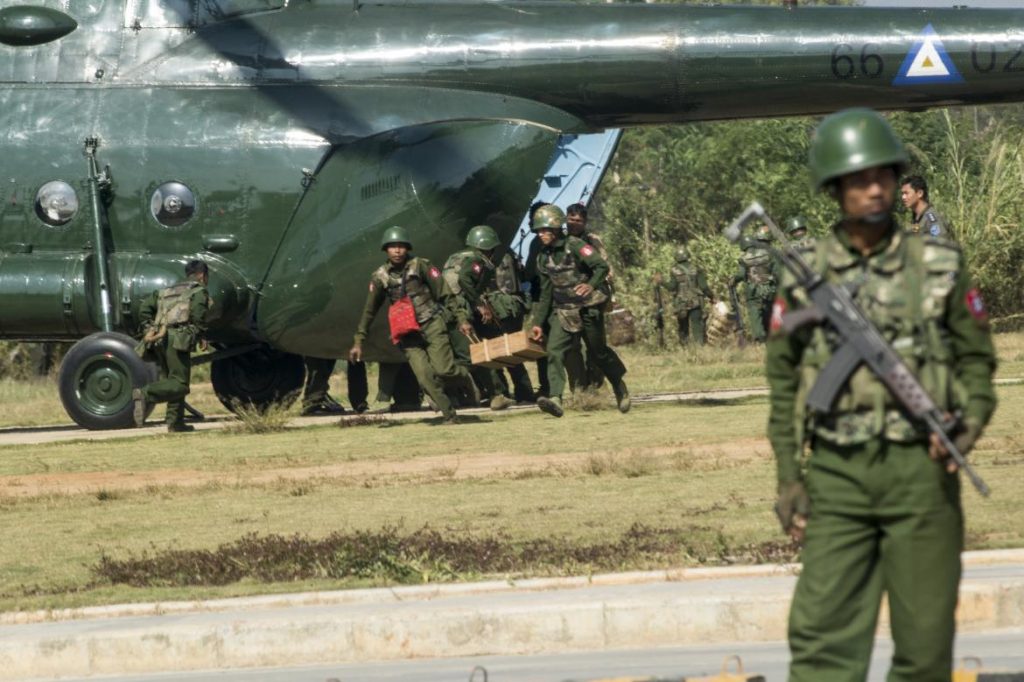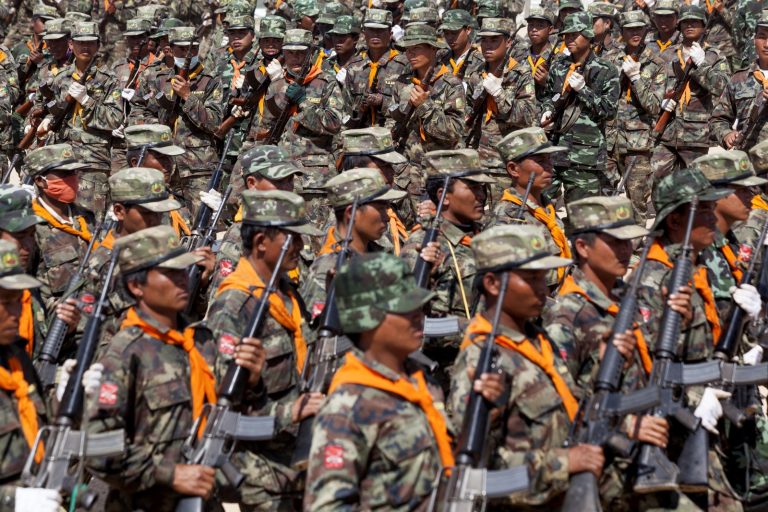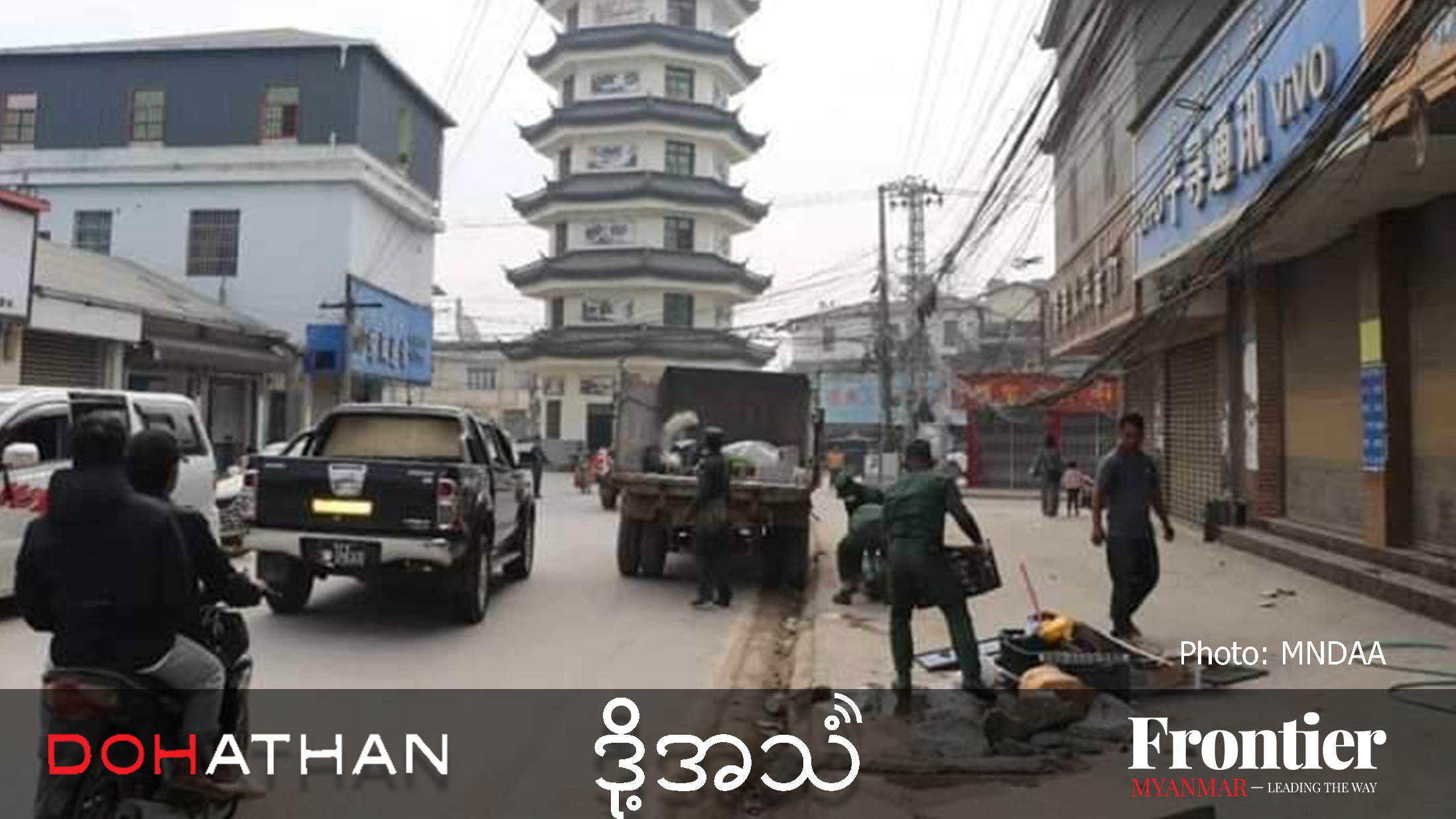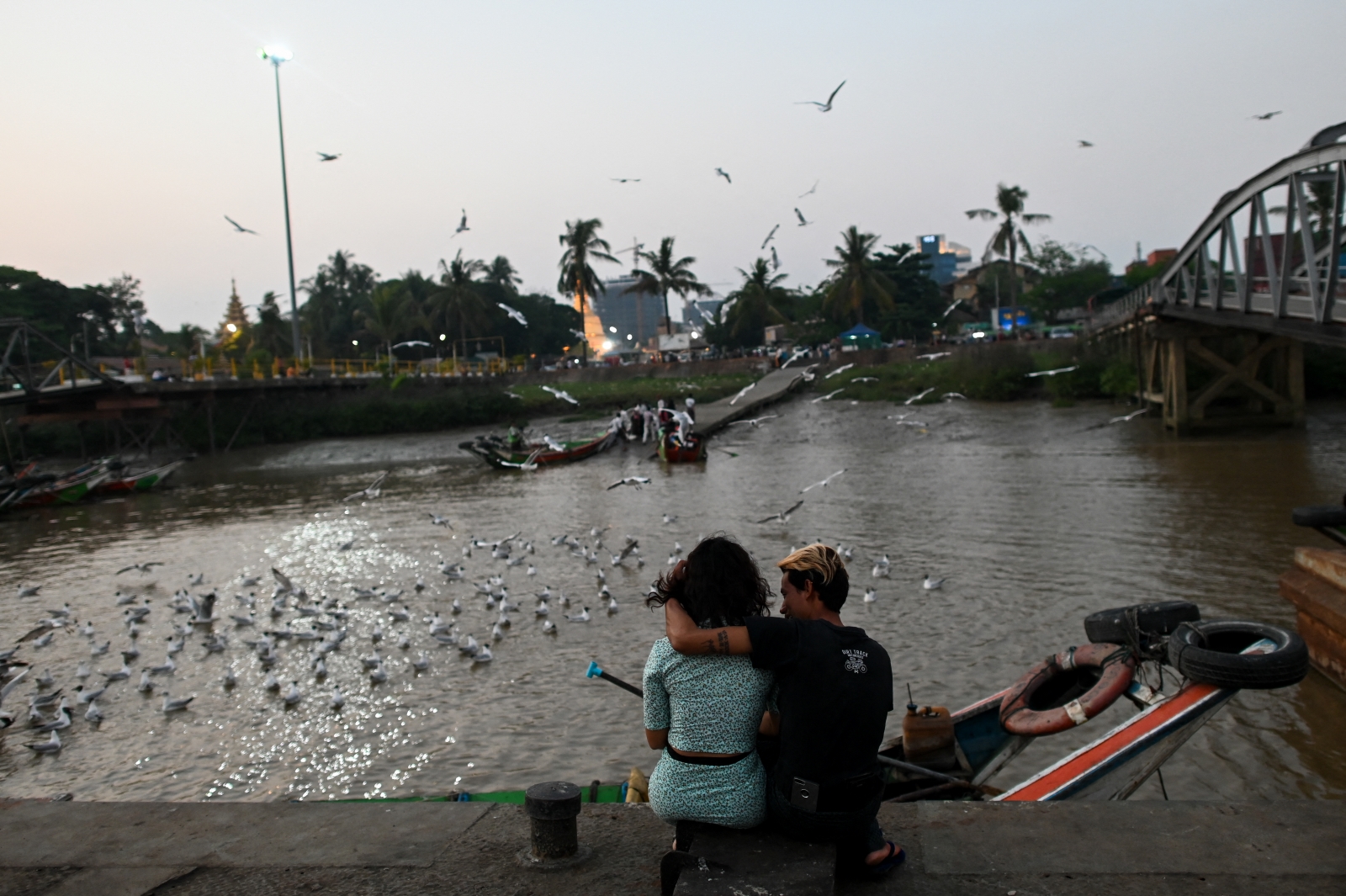By YE MON
YANGON — Negotiators have expressed hope that the military’s decision to halt operations in Shan and Kachin states for four months can resuscitate deadlocked peace talks.
The Commander-in-Chief’s Office announced today that it would suspend operations immediately until April 30, 2019 across five regional commands – northern, north eastern, eastern, triangle and eastern central – in order to pursue negotiations with armed groups based in those regions that are yet to sign the Nationwide Ceasefire Agreement (NCA).
There was no mention in the statement of operations in Rakhine State, however, where the Tatmadaw has been accused of ethnic cleansing targeting the Muslim Rohingya and said yesterday it had launched new clearance operations in response to recent attacks on Buddhist civilians.
U Hla Maung Shwe, an adviser to the Peace Commission, told Frontier that today’s announcement would have a positive effect on the peace process and ethnic armed groups should accept the Tatmadaw’s olive branch.
Support more independent journalism like this. Sign up to be a Frontier member.
He said he expected non-signatory armed groups to resume peace talks with the military individually, rather than collectively.
The statement from the Tatmadaw comes after three ethnic armed groups that had previously been frozen out of the peace process – the Myanmar National Democratic Alliance Army, the Ta’ang National Liberation Army and the Arakan Army – said following negotiations in China’s Yunnan Province on December 12 that they were willing to stop fighting and resolve conflicts through negotiation.
The concessions from both the armed groups and the military are thought to have been brokered by China, which is increasingly linking peace and stability with its economic ambitions in Myanmar.
The military’s statement said that during the next four months non-signatory groups needed to resume negotiations with the National Reconciliation and Peace Center (NRPC) towards signing the NCA
The military said it had formed a negotiating team led by Lieutenant-General Yar Pyae but also warned in the announcement that ethnic armed groups needed to follow its six-point policy.
In a possible relaxation of the policy, the announcement mentioned only four of the six points: to keep promises agreed to in peace deals, to avoid placing a heavy burden on local people, to avoid capitalising on the peace agreement and to strictly abide by existing laws.
The two points that were not mentioned were “to march towards a democratic country in accord with the 2008 Constitution” and “to have a keen desire to reach eternal peace”.
Commander-in-Chief Senior General Min Aung Hlaing said at a meeting with the Myanmar Press Council today that the peace process was the military’s first priority and it was trying hard to achieve success.
“We’re responding to the demands of the ethnic armed groups as much as we can,” he said.
In October 2015, eight ethnic armed groups, including the Karen National Union and Restoration Council of Shan State, signed the NCA. The number of signatories rose to 10 earlier this year when the New Mon State Party and Lahu Democratic Union inked the agreement.
However, many of the country’s most powerful ethnic armed groups have refused to sign and formed the Federal Political Negotiation and Consultative Committee to demand major changes to the ceasefire.
The government has pursued a political dialogue process with NCA signatories, holding three “21st Century Panglong” peace conferences in Nay Pyi Taw.
However, little progress has been made and following a leaders’ summit in October the KNU announced it was suspending its participation in the peace process. The RCSS also announced that it would not participate in the Joint Monitoring Committee, a mechanism set up to monitor ceasefire implementation.
Political analyst U Maung Maung Soe said he expected ethnic armed groups to respond positively to the military’s announcement but cautioned that it would be extremely difficult to convince non-signatories to sign the NCA in just four months.
“I don’t want to say it’s impossible though – anything is possible if both sides want it to happen,” he said.







